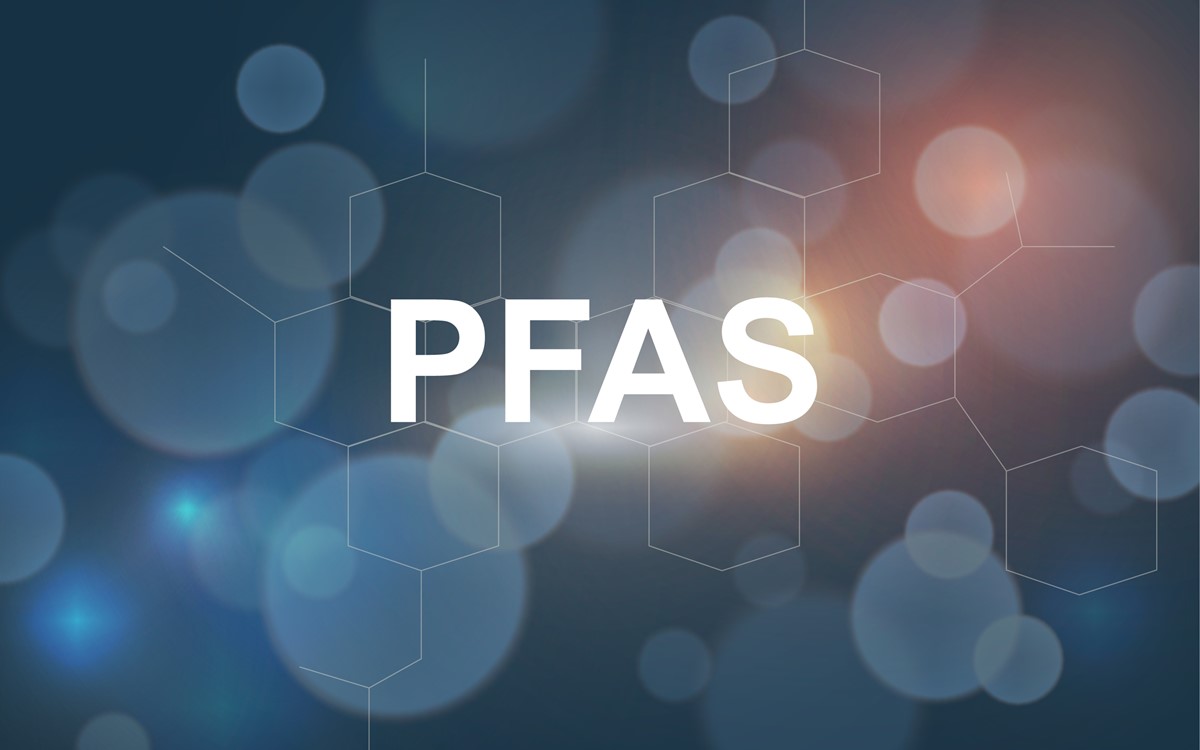It’s easy to assume industrial sites are the main culprits when it comes to chemical exposure, but in recent findings, it seems the everyday items in homes like waterproof jackets, non-stick pans and even personal care products might contain more per- polyfluoroalkyl substances (PFAS) than some regulated manufacturing facilities.

What are PFAS?
PFAS are a group of synthetic chemicals that have been used since the 1950s, thanks to their resistance to heat, water and oil. They’re found in a variety of different consumer products, including cookware, cosmetics and food packaging. However, due to their chemical structure, PFAS don’t breakdown easily in the environment or the human body, which has earned them the nickname “forever chemicals”. Prolonged exposure to certain PFAS compounds have been associated with potential health risks including cancer, liver damage and developmental effects in children, although there is still research ongoing. Their persistence means they accumulate over time, creating a long-term risk that’s still being researched by scientists and regulators alike.
PFAS in everyday life
Recent studies have revealed the widespread presence of PFAS in consumer products. For example, a government analysis found nearly 95% of certain fruit and vegetables sold in UK supermarkets contained PFAS. It seems most likely this is due to contaminated water or soil. Studies have found PFAS in a range of personal care products including some shampoos and cosmetics. These findings challenge the assumption that only industrial emissions contribute significantly to environmental PFAS contamination, highlighting the need for scrutiny of consumer goods as a major exposure pathway.
The regulatory landscape in the UK
In response to growing concerns, UK regulators have started to tighten controls on PFAS. The Health and Safety Executive (HSE) has identified PFAS as a priority under the UK REACH framework, with plans to assess and potentially restrict their use in various applications, including firefighting foams and consumer products. Furthermore, the Environmental Audit Committee has launched an inquiry to evaluate the risks of PFAS and the adequacy of the current regulations. These regulatory efforts aimed to balance protecting public health and the environment while managing the economic impacts on industries reliance on these substances.
The A-Gas commitment to safety and compliance
At A-Gas Electronic Materials, we recognise the importance of managing chemical substances responsibly. We are committed to ensuring our products and services align with current regulations and best practices. Our approach includes rigorous supplier vetting, comprehensive safety documentation, and ongoing training to promote safe handling and environmental stewardship.
We supply a range of high-purity chemicals that are essential for electronic manufacturing processes. Our products are sourced from reputable suppliers and are accompanied by comprehensive safety data sheets to ensure proper handling and compliance.
Our dedicated laboratory also offers analytical services including pH measurement, UV spectrophotometry and titration to help our clients maintain process control and product quality. Our technical team provides on-site support and training to ensure safe and efficient use of our products.
At A-Gas, we are committed to staying abreast of all regulatory developments related to chemical substances, including PFAS, to ensure our operations and offerings meet or exceed compliance requirements. Our commitment to safety and environmental responsibility is integral to our business practices, helping us to support clients in navigating the evolving chemical regulations.
The presence of PFAS in everyday products underscores the need for increased awareness and regulatory oversight. While industries play a crucial role in managing chemical risks, consumers also have a part to play by staying informed and making conscious choices. Recognising that PFAS exposure is not confined to industrial settings but is widespread in consumer goods compels a broader conversation on chemical safety.
At A-Gas Electronic Materials, we’re dedicated to supporting our clients and the broader community in navigating these challenges through responsible practices and continuous improvement. Ultimately, reducing the environmental and health impacts of PFAS requires a shared commitment from manufacturers, regulators, and consumers alike, fostering transparency, innovation, and safer alternatives in everyday products.
Get in touch to learn how we can support your business with high-purity chemicals, with expert guidance on regulatory requirements.
